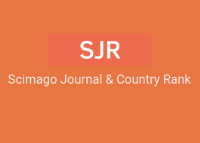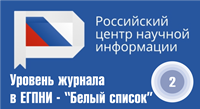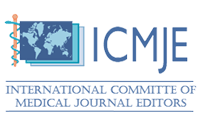АНТИОКСИДАНТНАЯ АКТИВНОСТЬ, СОДЕРЖАНИЕ ИРИДОИДОВ И ФЕНОЛЬНЫХ СОЕДИНЕНИЙ В РАСТЕНИЯХ GENTIANA CRUCIATA L. ИЗ РАЗНЫХ МЕСТ ОБИТАНИЯ
Аннотация
Обоснование. Эколого-географические условия места обитания могут влиять на синтез и накопление различных фитохимических и, следовательно, на биологические эффекты, в том числе, антиоксидантные свойства лекарственных растений. Понимание влияния условий места обитания на биоактивные соединения в лекарственных растениях очень важно для выбора места выращивания и сбора растений с наилучшим содержанием биоактивных веществ, что позволит обеспечить фармакологическую промышленность наиболее качественным сырьем.
Цель данного исследования состоит в изучении накопления иридоидов, фенольных соединений и антиоксидантной активности растения Горечавки крестовидной G. сruciate в зависимости от местообитания.
Материалы и методы. Исследование проводили на растениях G. сruciate, которые были собраны из трех районов (Лаишевский, Альметьевский и Верхнеуслонский районы) Республики Татарстан. Сумму иридоидов определяли в пересчете на генциопикрозиде, профиль индивидуальных фенольных соединений оценивали методом ВЭЖХ на хроматографической системе высокого давления BIO-RAD (США) на колонке SN-421001911, 5μм, 4×250 мм (США). Детекцию пиков осуществляли посредством двухволнового УФ ВЭЖХ детектора BioLogic QuadTec UV-Vis (США) при длине волны 260 нм. Антиоксидантную активность экстракта G. cruciate оценивали по его способности ингибировать аутоокисление адреналина in vitro.
Результаты. Были выявлены регионы Республики Татарстана с наилучшим качеством лекарственного сырья, а также факторы, способствующие накоплению различных групп биологически активных веществ в растениях G. сruciate. Решающую роль в накоплении иридоидов оказали влажность и тип почв; на синтез фенольных соединений большее влияние оказала влажность, нежели тип почв. Высокая антиоксидантная активность не коррелировала с содержанием фенольных соединений. По-видимому, высокая антиоксидантная активность обусловлена присутствием иридоидов, которые считаются основными веществами растения рода Горечавки.
Выводы. Альметьевский и Лаишевский районы могут быть рекомендованы для выращивания и сбора лекарственных растения вида G. cruciata.
Скачивания
Литература
Список литературы
Бовина Н. В. Экологическая оценка влияния применения различных систем удобрения на гумусовое состояние дерновоподзолистых почв в длительных стационарных опытах. Москва, 2020. 142 с. http://www.old.timacad.ru/catalog/disser/kd/bovina/kd_bovina.pdf
Марчиши С. М., Стойко Л. И., Дахим И. С. Определение качественного состава и количественного содержания кислот гидроксикоричных в горечавки крестовидной траве (Gentiana cruciatal.) // Farmatsevtychnyi zhurnal. 2016. № 3-4. С. 76-81.
Рудакова Ю.Г. Фармакогностическое изучение дубровника белого (Teucrium polium L.) флоры северного Кавказа. Диссертация на соискание ученой степени кандидата фармакологических наук. Пятигорск, 2015. 166 с.
Рябинина Е.И., Зотова Е. Е., Ветрова Е.Н., Пономарева Н. И., Илюшина Т.Н. Новый подход в оценке антиоксидантной активности растительного сырья при исследовании процесса аутоокисления адреналина // Химия растительного сырья. 2011. № 3. С. 117–121.
Салимзянова И. Н. Агрохимическая оценка почв предкамья Республики Татарстан. Казань, 2004. 158 с.
Хуснетдинова Л.З., Акулов А.Н., Дубровная С.А. Изучение спектра биологически активных флавоноидов травы Hypericum perforatum флоры Республики Татарстан методом высокоэффективной жидкостной хроматографии // Химия растительного сырья. 2017. №4. С. 175-179. https://doi.org/10.14258/jcprm.2017041841
Badakhshan M. P., Subramanion L. J., Lachimanan Y. L., Yeng C., Sreenivasan S. Antioxidant activity of methanol extracts of different parts of Lantana camara // Asian pac j trop biomed. 2012. Vol. 2(12). P. 960-965. https://doi.org/10.1016/S2221-1691(13)60007-6
Budniak L., Slobodianiuk L., Marchyshyn S., Basaraba R., Banadyga A. The antibacterial and antifungal activities of the extract of Gentiana cruciata L. herb. Phol. 2021. Vol. 2. P. 188-197. https://pharmacologyonline.silae.it/files/archives/2021/vol2/PhOL_2021_2_A022_Budniak.pdf
Ismail N. Z., Arsad H., Samian M. R., Hamdan M. R. Determination of phenolic and flavonoid contents, antioxidant activities and GC-MS analysis of Clinacanthus nutans (Acanthaceae) in different locations // Agrivita journal of agricultural science. 2017. Vol. 39(3). P. 335–344. http://doi.org/10.17503/agrivita.v39i3.1076
Jin M., Feng H.,Wang Y., Yan S., Shen B., Li Z., Haiyan Qin H., Wang Q., Li J., Liu G. Gentiopicroside ameliorates oxidative stress and lipid accumulation through nuclear factor erythroid 2-related factor 2 activation. Hindawi // Oxidative medicine and cellular longevity. 2020. Vol. 2020. P. 1-13. https://doi.org/10.1155/2020/2940746
Kaur R., Yadav P., Sharma A., Kumar T. A., Kumar V., Kaur K. S., Bhardwaj R. Castasterone and citric acid treatment restores photosynthetic attributes in Brassica juncea L. under Cd (II) toxicity // Ecotoxicol. Environ. saf., 2017. Vol. 145. P. 466–475. https://doi.org/10.1016/j.ecoenv.2017.07.067
Khusnetdinova, L. Z., Salmin E. M. The content of phenolic compounds in Gentiana cruciata L. growing in the territory of the Republic of the Tatarstan // J res med dent sci. 2020. Vol. 8 (7). P. 109-112.
Liu W., Yin D., Li N., Hou X., Wang D., Li D., Liu J. Influence of Environmental Factors on the Active Substance production and antioxidant activity in Potentilla fruticoasa L. and its quality assessment // Scientific reports. 2016. Vol. 6, 28591. P. 1-18. https://doi.org/10.1038/srep28591
Mirzaee, F., Hosseini A., Jouybari H.B., Davoodi A., Azadbakht M. Medicinal, biological and phytochemical properties of Gentiana species // Journal of traditional and complementary medicine. 2017. Vol. 7(4). P. 400–408. https://doi.org/10.1016/j.jtcme.2016.12.013
Quiroz-González B., García-Mateos R., Corrales-García1 J.J.E., Colinas-León M.T. Pitaya (Stenocereus spp.): an under-utilized fruit // JPACD. 2018. Vol. 20. P. 82-100. https://www.jpacd.org/jpacd/article/view/30
Rezende W.P., Leonardo L Borges L.L., Santos L. D., Alves M. N., Paula R.J. Effect of environmental factors on phenolic compounds in leaves of Syzygium jambos (L.) Alston (Myrtaceae) // Mod Chem appl. 2015. Vol. 3(2). P. 1-6. https://doi.org/10.4172/2329-6798.1000157
Sadia S., Aftab B., Tariq A., Zhang J., Razaq A. Gentiopicrin and swertiamarin contents in Gentiana macrophylla pall. roots along elevation gradient in Donglingshan meadow, Beijing, China. Pak // J. Bot. 2018. Vol. 52(1). P. 1-7. http://dx.doi.org/10.30848/PJB2020-1(31)
Sharma A., Shahzad B., Rehman A., Bhardwaj R., Landi M., Zheng B. Response of phenylpropanoid pathway and the role of polyphenols in plants under abiotic stress // Molecules. 2019. Vol. 24. P. 1-22. https://doi.org/10.3390/molecules24132452
Soto-Hernández M., Palma-Tenango M., García-Mateos M. R. Phenolic compound. Biological activity. Croacia: Intech., 2017. 227 p. https://doi.org/10.5772/63693
Wang Z., Cuiming T., Dai F., Xiao G., Luo G. HPLC determination of phenolic compounds in different solvent extracts of mulberry leaves and antioxidant capacity of extracts // International journal of food properties. 2021. Vol. 24. P. 544-552. https://doi.org/10.1080/10942912.2021.1904980
Yaoa T., Cuia Q., Liua Z., Wanga C., Zhanga Q., Wang G. Metabolomic evidence for the therapeutic effect of gentiopicroside in a corticosterone-induced model of depression // Biomedicine & pharmacotherapy. 2019. Vol. 120. P. 1-14. https://doi.org/10.1016/j.biopha.2019.109549
Yuanyuan Z., Ping C., Guanghui C., Yongqiang Z. A brief review of phenolic compounds identified from plants: Their extraction, analysis and biological activity // Natural product communications. 2022. Vol. 17(1). P. 1–14. https://doi.org/10.1177/1934578X211069721
Zahra Z., Mansureh G., Gianluigi B., Ali T. Effects of ecological factors on the antioxidant potential and total phenol content of Scrophularia striata Boiss // Scientific reports. 2019. Vol. 9(16021). P. 1-15. https://doi.org/10.1038/s41598-019-52605-8
Zekeya N., Ibrahim M., Mamiro B., Ndossi H., Kilonzo M., Mkangara M., Chacha, M., Chilongola J., Kideghesho J. Potential of natural phenolic antioxidant compounds from Bersama abyssinica (Meliathacea) for treatment of chronic diseases // Saudi journal of biological sciences. 2022. Vol. 29. P. 1-7. https://doi.org/10.1016/j.sjbs.2022.03.023
Zhanga, J., Zhang Z., Wang Y., Zuo Y., Cai C. Environmental impact on the variability in quality of Gentiana rigescens, a medicinal plant in southwest China // Global ecology and conservation. 2020. Vol. 24. P. 1-10. https://doi.org/10.1016/j.gecco. 2020.e01374
Zhou D., Hou Q., Si Q., Liu J., Yang H. Concentrations of the active constituents of the Tibetan folk medicine Qinjiao (Gentiana sect. cruciata) within and between taxonomic species across the Qinghai-Tibetan plateau // Biochemistry&biodiversity. 2010. Vol. 7(8). P. 2088-2094. https://doi.org/10.1002/cbdv.200900420
References
Bovina N. V. Environmental assessment of the impact of the use of various fertilizer systems on the humus state of soddy-podzolic soils in long-term stationary experiments. Moscow, 2020, 142 p. http://www.old.timacad.ru/catalog/disser/kd/bovina/kd_bovina.pdf
Marchishi S. M., Stoyko L. I., Dakhim I. S. Determination of the qualitative composition and quantitative content of hydroxycinnamic acids in cruciform gentian (Gentiana cruciatal.). Farmatsevtychnyi zhurnal, 2016, no. 3-4,pp. 76-81.
Rudakova Yu.G. Pharmacognostic study of white dubrovnik (Teucrium polium L.) of the flora of the North Caucasus. Dissertation for the degree of candidate of pharmacological sciences. Pyatigorsk, 2015, 166 p.
Ryabinina E.I., Zotova E.E., Vetrova E.N., Ponomareva N.I., Ilyushina T.N. A new approach to assessing the antioxidant activity of plant raw materials in the study of the process of adrenaline autoxidation. Chemistry of vegetable raw materials, 2011, no. 3, pp. 117–121.
Salimzyanova I. N. Agrochemical assessment of soils of the Kama region of the Republic of Tatarstan. Kazan, 2004, 158 p.
Khusnetdinova L.Z., Akulov A.N., Dubrovnaya S.A. Study of the spectrum of biologically active flavonoids of the herb Hypericum perforatum of the flora of the Republic of Tatarstan by high performance liquid chromatography. Chemistry of vegetable raw materials, 2017, no. 4, pp. 175-179. https://doi.org/10.14258/jcprm.2017041841
Badakhshan M. P., Subramanion L. J., Lachimanan Y. L., Yeng C., Sreenivasan S. Antioxidant activity of methanol extracts of different parts of Lantana camara. Asian pac j trop biomed., 2012, vol. 2(12), pp 960-965. https://doi.org/10.1016/S2221-1691(13)60007-6
Budniak L., Slobodianiuk L., Marchyshyn S., Basaraba R., Banadyga A. The antibacterial and antifungal activities of the extract of Gentiana cruciata L. herb. Phol., 2021, vol. 2, pp. 188-197. https://pharmacologyonline.silae.it/files/archives/2021/vol2/PhOL_2021_2_A022_Budniak.pdf
Ismail N. Z., Arsad H., Samian M. R., Hamdan M. R. Determination of phenolic and flavonoid contents, antioxidant activities and GC-MS analysis of Clinacanthus nutans (Acanthaceae) in different locations. Agrivita journal of agricultural science, 2017, vol. 39(3), pp. 335–344. http://doi.org/10.17503/agrivita.v39i3.1076
Jin M., Feng H.,Wang Y., Yan S., Shen B., Li Z., Haiyan Qin H., Wang Q., Li J., Liu G. Gentiopicroside ameliorates oxidative stress and lipid accumulation through nuclear factor erythroid 2-related factor 2 activation. Hindawi. Oxidative medicine and cellular longevity, 2020, vol. 2020, pp. 1-13. https://doi.org/10.1155/2020/2940746
Kaur R., Yadav P., Sharma A., Kumar T. A., Kumar V., Kaur K. S., Bhardwaj R. Castasterone and citric acid treatment restores photosynthetic attributes in Brassica juncea L. under Cd (II) toxicity. Ecotoxicol. Environ. saf., 2017, vol. 145, pp. 466–475. https://doi.org/10.1016/j.ecoenv.2017.07.067
Khusnetdinova, L. Z., Salmin E. M. The content of phenolic compounds in Gentiana cruciata L. growing in the territory of the Republic of the Tatarstan. J res med dent sci., 2020, vol. 8 (7), pp. 109-112.
Liu W., Yin D., Li N., Hou X., Wang D., Li D., Liu J. Influence of Environmental Factors on the Active Substance production and antioxidant activity in Potentilla fruticoasa L. and its quality assessment. Scientific reports, 2016, vol. 6, 28591, pp. 1-18. https://doi.org/10.1038/srep28591
Mirzaee, F., Hosseini A., Jouybari H.B., Davoodi A., Azadbakht M. Medicinal, biological and phytochemical properties of Gentiana species. Journal of traditional and complementary medicine, 2017, vol. 7(4), pp. 400–408. https://doi.org/10.1016/j.jtcme.2016.12.013
Quiroz-González B., García-Mateos R., Corrales-García1 J.J.E., Colinas-León M.T. Pitaya (Stenocereus spp.): an under-utilized fruit. JPACD, 2018, vol. 20, pp. 82-100. https://www.jpacd.org/jpacd/article/view/30
Rezende W.P., Leonardo L Borges L.L., Santos L. D., Alves M. N., Paula R.J. Effect of environmental factors on phenolic compounds in leaves of Syzygium jambos (L.) Alston (Myrtaceae). Mod Chem appl., 2015, vol. 3(2), pp. 1-6. https://doi.org/10.4172/2329-6798.1000157
Sadia S., Aftab B., Tariq A., Zhang J., Razaq A. Gentiopicrin and swertiamarin contents in Gentiana macrophylla pall. roots along elevation gradient in Donglingshan meadow, Beijing, China. Pak. J. Bot., 2018, vol. 52(1), pp. 1-7. http://dx.doi.org/10.30848/PJB2020-1(31)
Sharma A., Shahzad B., Rehman A., Bhardwaj R., Landi M., Zheng B. Response of phenylpropanoid pathway and the role of polyphenols in plants under abiotic stress. Molecules, 2019, vol. 24, pp. 1-22. https://doi.org/10.3390/molecules24132452
Soto-Hernández M., Palma-Tenango M., García-Mateos M. R. Phenolic compound. Biological activity. Croacia: Intech., 2017, 227 p. https://doi.org/10.5772/63693
Wang Z., Cuiming T., Dai F., Xiao G., Luo G. HPLC determination of phenolic compounds in different solvent extracts of mulberry leaves and antioxidant capacity of extracts. International journal of food properties, 2021, vol. 24, pp. 544-552. https://doi.org/10.1080/10942912.2021.1904980
Yaoa T., Cuia Q., Liua Z., Wanga C., Zhanga Q., Wang G. Metabolomic evidence for the therapeutic effect of gentiopicroside in a corticosterone-induced model of depression. Biomedicine & pharmacotherapy, 2019, vol. 120, pp. 1-14. https://doi.org/10.1016/j.biopha.2019.109549
Yuanyuan Z., Ping C., Guanghui C., Yongqiang Z. A brief review of phenolic compounds identified from plants: Their extraction, analysis and biological activity. Natural product communications, 2022, vol. 17(1), pp. 1–14. https://doi.org/10.1177/1934578X211069721
Zahra Z., Mansureh G., Gianluigi B., Ali T. Effects of ecological factors on the antioxidant potential and total phenol content of Scrophularia striata Boiss. Scientific reports, 2019, vol. 9(16021), pp. 1-15. https://doi.org/10.1038/s41598-019-52605-8
Zekeya N., Ibrahim M., Mamiro B., Ndossi H., Kilonzo M., Mkangara M., Chacha, M., Chilongola J., Kideghesho J. Potential of natural phenolic antioxidant compounds from Bersama abyssinica (Meliathacea) for treatment of chronic diseases. Saudi journal of biological sciences, 2022, vol. 29, pp. 1-7. https://doi.org/10.1016/j.sjbs.2022.03.023
Zhanga, J., Zhang Z., Wang Y., Zuo Y., Cai C. Environmental impact on the variability in quality of Gentiana rigescens, a medicinal plant in southwest China. Global ecology and conservation, 2020, vol. 24, pp. 1-10. https://doi.org/10.1016/j.gecco. 2020.e01374
Zhou D., Hou Q., Si Q., Liu J., Yang H. Concentrations of the active constituents of the Tibetan folk medicine Qinjiao (Gentiana sect. cruciata) within and between taxonomic species across the Qinghai-Tibetan plateau. Biochemistry&biodiversity, 2010, vol. 7(8), pp. 2088-2094. https://doi.org/10.1002/cbdv.200900420
Просмотров аннотации: 519
Copyright (c) 2023 Estella Bimenyindavyi, Olga A. Timofeeva

Это произведение доступно по лицензии Creative Commons «Attribution-NonCommercial-NoDerivatives» («Атрибуция — Некоммерческое использование — Без производных произведений») 4.0 Всемирная.

























































